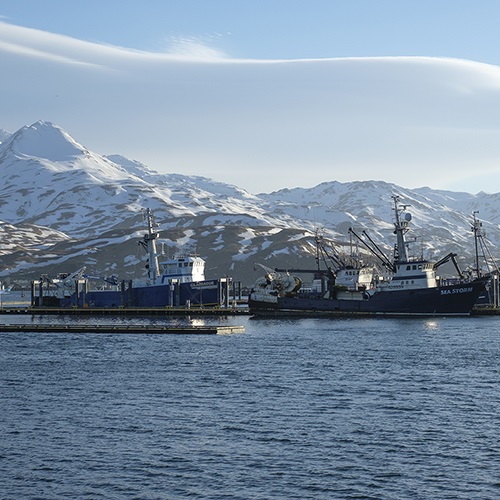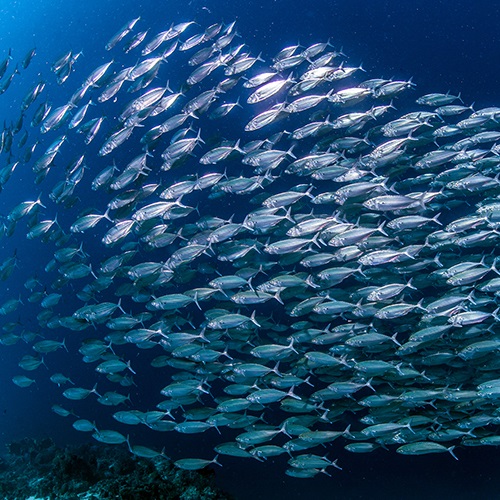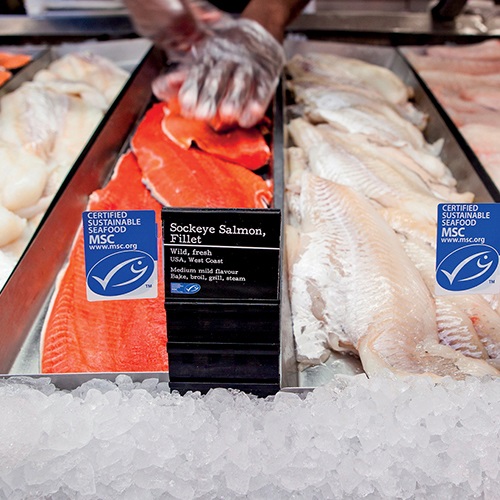We review and update our assurance processes so you can have confidence in our program.
What is our assurance system?
Our assurance system is a series of safeguards that make sure assessments of fisheries and supply chains are fair and accurate.
These safeguards include:
- Ensuring assessments are conducted by independent auditors who are appropriately qualified
- Having Assurance Services International (ASI) oversee the activities of certification bodies
- Ensuring certification bodies follow international Standards so assessments are consistent and impartial
- Having assessments peer-reviewed by independent scientists.
Find out more about how we meet best practice.
Our Assurance Review
We take a proactive approach to ensure we maintain global best practice through regularly reviewing and improving our assurance system. This allows us to increase the system's effectiveness and address stakeholder concerns.
Over time we have added many new safeguards to our program, but there’s always room for improvement, so we are conducting an in-depth review of our assurance system to make it even stronger.
Our latest assurance review started in 2018 and focuses on the priority topics identified by stakeholders, through consultation, and by our own monitoring and evaluation process.
What we are working on
To get certified, fisheries must be working at a high standard overall while also meeting the MSC’s minimum requirements in all areas. But independent certification bodies may still find areas the fishery can improve on, and issue it a condition of certification. These are improvements the fishery must make to stay certified.
Conditions are assessed annually by certification bodies and when a fishery has made the required improvements the condition will be ‘closed’. If a fishery fails to make the improvements it may be suspended from the MSC program. As part of our assurance review, we’re looking at how assessors set and close these conditions.
Results of the review
We commissioned independent accreditation experts, Assurance Services International (ASI), to look at the way conditions are identified, evaluated and closed. ASI found that most conditions are closed in accordance with the MSC’s requirements. But the report also found that while we have strengthened the process certification bodies follow when evaluating and closing conditions, there is still room for improvement.
Improving our processes
We have improved the way assessors report on conditions in fishery assessments to increase transparency around how conditions are set, monitored and closed. Certification bodies will need to provide more information on conditions in fishery assessment and surveillance reports.
Using stakeholder feedback, we have strengthened and clarified the Fisheries Certification Process to ensure conditions are closed consistently. These changes will be released in the updated Fisheries Certification Process v2.2 in March 2020.
We are going to continue our work in this area in 2020. Find out more about the improvements MSC certified fisheries have made from completing conditions.
As a third-party certification program, the MSC does not carry out audits or certify fisheries. We set the standards that independent assessors must apply.
Although this is regarded as the best way to ensure assessments are unbiased, it is important to make sure there are no conflicts of interest within the assessment process. For example, a conflict of interest would occur if an assessor was also working as a consultant for the same fishery. Find out about our current safeguards to manage conflict of interest.
Latest developments
We reviewed the certification decision making process, compared our program with other certification programs, and reviewed the impartiality controls within our assurance system. The review found our program has strong processes for ensuring impartial assessments such as the independent peer review of fishery assessments. Following this work, we are confident that our assurance system minimizes the risk of potential conflicts of interest and we will not be making any substantial changes to our current system.
Assurance Services International (ASI) provide impartial oversight of how certification bodies apply the MSC Standards in assessments. They conduct compliance assessments of the certification bodies that audit fisheries and supply chain companies. We’re working closely with ASI to improve how we evaluate the effectiveness of our assurance system.
It’s vital that all supply chain auditors and fishery assessors have the key skills, qualifications and relevant training before they can conduct MSC assessments. Independent auditors and assessors must pass our online training modules on the MSC Standards before they can conduct assessments.
What changes are we making?
To improve the consistency of assessments we’re adding new training modules to our online training platform. We want to provide more in-person training and we’ll be piloting a new training workshops program in 2020, with the intention to roll it out globally in 2021.
Peer review is a key part of the MSC fishery assessment process. Since September 2017, all MSC fishery assessments are reviewed by independent scientists through the MSC’s Peer Review College.
What changes have we made?
We have improved the requirements on potential conflict of interest and provided reviewers with more in-depth training on this subject. The college has also revised its processes to make sure all peer reviewer comments are addressed in fishery assessments.
In fishery assessments, independent assessors use their scientific expertise to score a fishery based on the evidence available. This determines if a fishery meets the MSC’s certification criteria. In fisheries research, evidence can be incomplete or show conflicting results and assessors must take data uncertainty into account.
Sometimes assessors, peer reviewers and stakeholders come to different conclusions based on the same evidence because of how they have interpreted the risks and uncertainties. This can lead to experts having different views on certification decisions.
What changes are we making?
Stakeholder input is an essential part of the MSC certification process. We are improving the way peer reviewer and stakeholders’ comments in fishery assessments are recorded. Certification bodies will also be required to send us complaints they receive, to improve our insight into stakeholder concerns. These changes will be released in the Fisheries Certification Process 2.2.
We are also looking at how we can improve mechanisms for resolving disputes. This includes reviewing the objections procedure. Any future changes will go through a process of public consultation.
Improving our processes
In 2020, we will be holding a targeted consultation workshop with stakeholders to look at how we can improve the processes for resolving disagreement between experts in fishery assessments.
What is happening during the Assurance Review?
| 2018 | The Assurance Review is launched following feedback from stakeholders. We held stakeholder workshops and consulted with the MSC Technical Advisory Board and Stakeholder Advisory Council to gain an insight into the topic areas that should be prioritised in the review. |
| 2019 | The MSC Board of Trustees approved the focus projects for the Assurance Review. We commissioned research and made improvements to several topics as a result of the review. We also held public stakeholder consultations on options for revising the Fisheries Certification Process. |
| 2020 | The first changes will be implemented in the new Fisheries Certification Process. Project research will continue with targeted consultation workshops when needed. At the end of 2020 the Assurance Review will end. |
| 2021 | In 2021 the MSC may continue individual projects that will benefit from further monitoring and research, working closely with stakeholders. |
Questions? Contact us
For more information on the Assurance Review please email [email protected].
What is the MSC?
The MSC is an international non-profit organisation. We want future generations to be able to enjoy seafood and oceans full of life, forever.

How we meet best practice
It’s vital that everyone, from fishers to retailers, scientists to consumers, has confidence in the blue MSC label.

Is seafood with the MSC label really sustainable?
You can trust that seafood with the blue MSC label was caught by a responsible fishery in a sustainable way.
